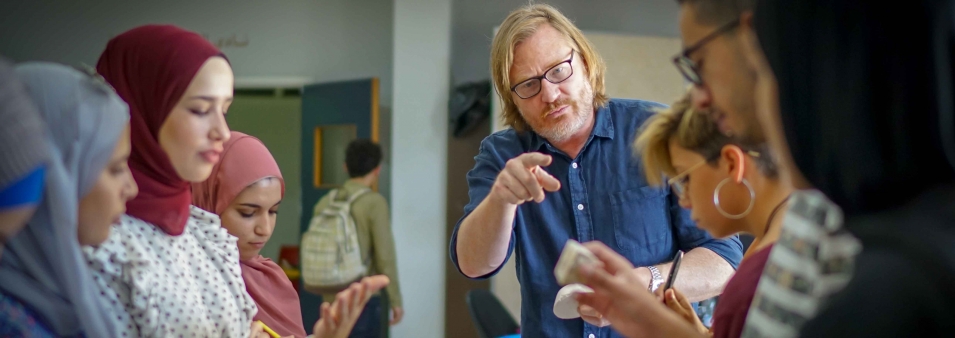Heightened restrictions on Birzeit University’s right to hire and maintain international faculty persist into the 2019-2020 academic year. Israel has escalated what can only be understood as a policy whose….

Heightened restrictions on Birzeit University’s right to hire and maintain international faculty persist into the 2019-2020 academic year. Israel has escalated what can only be understood as a policy whose ultimate goal is the elimination of any international faculty presence at Palestinian universities.
Our 14,800 students returned to classes on 4 September with a third of their international faculty missing, the Israeli authorities having denied them entry or forced their departure by refusing them any viable means to stay in the country or return. The status of international faculty able to make it to campus remains extremely precarious; 60% have lapsed or only short-term visas due to expire before the end of the first semester. In short, except for a handful of instructorsunder foreign government fellowships or programs, all of our international faculty currently in the country are under constant threat of deportation.
Israel’s pursuit of this policy threatens to empty Palestinian classrooms and campuses of international faculty. Our numbers of international staff continue to fall while our departments and programs cannot entertain the possibility of recruiting further international faculty. Last year, more than twelve of our academic programs were negatively affected by this destructive policy; many of them are now being further compromised.
Birzeit University will continue to challenge Israel’s discriminatory and destructive policy which is in contravention of international law and all universally accepted standards of academic freedom. With the support of Palestinian human rights organizations Adalah and Al-Haq, we are moving forward with our legal challenge. We call on the international community to meet its own obligations in ensuring that Israel uphold these standards and the Palestinian right to education more generally.
We are grateful to international academic associations, cultural organizations, human rights groups, and scholars world-wide who have undertaken actions in support of our efforts to uphold Birzeit University’s academic sovereignty and our right to international faculty. Academic networks across the world, representing thousands of university professors and teachers have joined with us over the past months to protest Israel’s attack on Palestinian higher education institutions. In a letter to the Israeli authorities demanding the end to this unjust policy, Scholars at Risk Network, wrote:
The international exchange of ideas is at the heart of academic life. The right to academic freedom and its component freedom of expression—which includes the “freedom to seek, receive and impart information and ideas of all kinds, regardless of frontiers,”—are protected under international human rights standards including Article 19 of the International Covenant on Civil and Political Rights, to which Israel is a party. International faculty at universities such as BZU not only benefit the campuses where they work, but represent the long-term development of a broader, more diverse Palestinian higher education system as well.
Similarly, in their statement to the Israeli authorities, the American Anthropological Association underlined that:
As an organization, we are committed to academic freedom, and as scholars we can directly attest to the benefits and values of higher education. We therefore call upon you to ensure that these professors can obtain entry and receive visas for the duration of their work contracts, and that the academic restrictions, which make it exceedingly difficult for foreign nationals to work in academic institutions in Palestine, be abolished immediately.
We ask that you continue to take action and demand that Israel stop blocking international faculty from Birzeit and other Palestinian universities, a policy that strikes at the core of Palestinians’ fundamental rights to education, academic freedom, and development.
